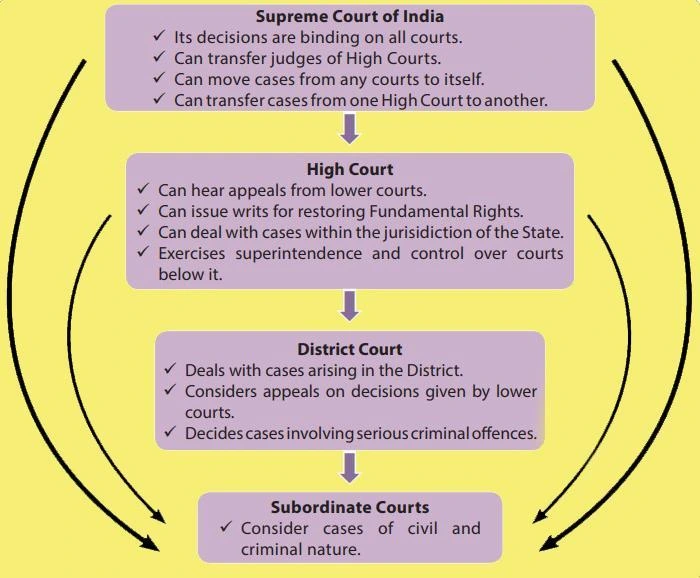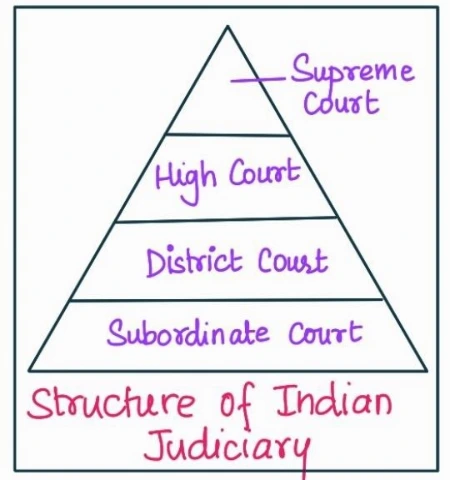![]() 4 Dec 2023
4 Dec 2023
There are three institutional frameworks of the Government – Legislative, Executive, and Judiciary. We have rule of law in India which means that laws apply equally to all persons and that a certain set of fixed procedures need to be followed when a law is violated. To enforce this rule of law, we have the Indian Judiciary, to which citizens can approach when a law is violated. Thus, the study of the Indian judicial system becomes necessary.


| No. | Criminal Law
|
Civil Law
|
| 1. | Deals with conduct or acts that the law defines as offenses.
|
Deals with any harm or injury to the rights of individuals.
|
| 2. | It usually begins with lodging a First Information Report (FIR) with the police investigating the crime, after which a case is filed in the court. | In the Indian Judiciary, a petition has to be filed before the relevant Court by the affected party only.
In a rent matter, either the landlord or the tenant can file a case. |
| 3. | If found guilty, the accused can be sent to jail and also fined. | The court gives the specific relief asked for. For instance, in a case between landlord and tenant, the court can order the flat to be vacated and pending rent to be paid. |
Explore the vital roles of the Indian Judiciary – resolving disputes between citizens, citizens and the government, state governments, and the center. Learn how it reviews laws and ensures fundamental rights, embodying justice for every citizen.
<div class="new-fform">
</div>